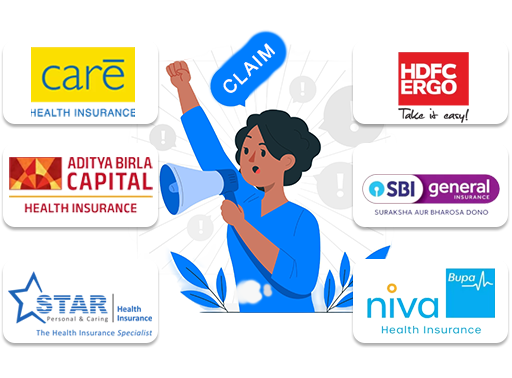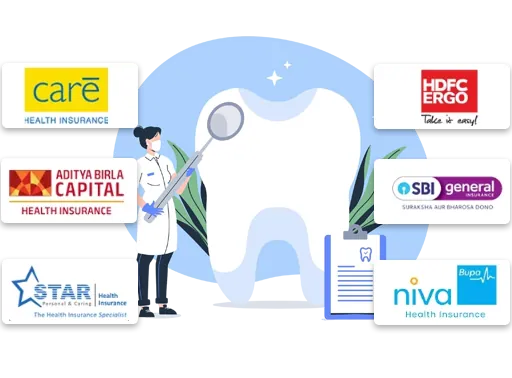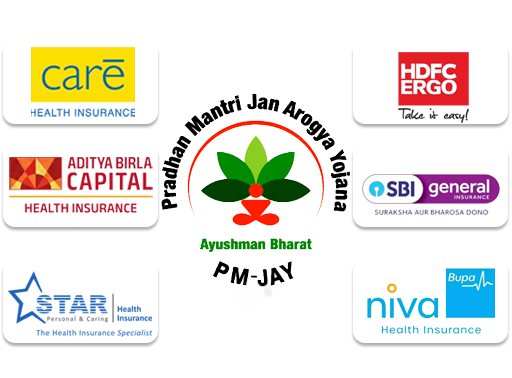Pros & Cons Of Health Insurance




Daina is a content writer with a profound grasp of Insurance, Stocks, and Business domains. Her extensive 3-year experience in the insurance industry equips her with a nuanced understanding of its intricacies. Her skills extend to crafting blogs, articles, social media copies, video scripts, and website content. Her ability to simplify complex insurance concepts into reader-friendly content makes her an expert in the domain.
Reviewed By:

Sharan Gurve has spent over 9 years in the insurance and finance industries to gather end-to-end knowledge in health and term insurance. His in-house skill development programs and interactive workshops have worked wonders in our B2C domain.
Updated on Jun 25, 2025 6 min read
Advantages and Disadvantages Of Health Insurance
A crucial tool for financial protection against medical expenses is health insurance. It involves an agreement between an individual and an insurance company, where the individual makes regular premium payments to receive medical cost coverage. Considering whether to invest in a policy requires understanding the advantages and disadvantages of health insurance. In this article, we will review the benefits and drawbacks of health insurance. We will also go over the significance of having proper health insurance coverage and things to keep in mind when picking a health insurance plan.
Advantages of Health Insurance
Health insurance has various advantages attached to it. The following are the benefits of having a health insurance policy:
- Financial Protection
Health insurance provides financial protection by covering high medical costs. Coverage under health insurance policies extends to medical expenses like hospitalisation, surgeries, prescription medications, and preventive care. Having insurance enables you to escape sizable out-of-pocket costs. It can also protect against unforeseen medical expenses that may cause financial burdens. - Network Healthcare Providers
A network of healthcare providers and facilities is accessible with health insurance. This confirms that you can get timely medical attention and enjoy quality healthcare services. Health insurance plans commonly establish partnerships with hospitals and doctors. Finding the right healthcare provider for your needs becomes easier with this. - Preventive Services
Coverage for preventive services like vaccinations, screenings, and annual check-ups is offered by many health insurance plans. These preventative actions can aid in detecting health concerns at an early stage. They can also stop the progression of additional and expensive illnesses. Prioritising regular preventive care can lead to improved overall health and well-being. - Pre-Existing Illness
Health insurance provides coverage for the treatment and management of extended illnesses. This is specifically beneficial for individuals who have pre-existing conditions like diabetes, asthma, or heart disease. Access to necessary medications, treatments, and specialised care for managing your condition effectively is ensured by having health insurance. - Peace of mind
Peace of mind is assured with health insurance coverage. Awareness of your financial protection in case of a medical emergency or unexpected health issue. It reduces the stress and concern linked to a possible load of expensive medical bills. The availability of insurance coverage allows you to prioritise your recovery and well-being, eliminating any apprehension regarding burdensome healthcare expenses. - Tax Benefits
The cost of a health insurance policy’s premium is deducted from taxable income under Section 80D of the Income Tax Act. The deductible amount’s highest limit is Rs. 25,000; for senior citizens, it can be increased to Rs. 50,000. Occasionally, the tax benefit can go up to Rs. 1,000,000 (Rs. 50,000+Rs. 50,000) if both the proposer and his parents are older than 60 years.
Disadvantages of Health Insurance
Like every other thing, health insurance too has its drawbacks. Given below are the setbacks of having a health insurance policy:
- High Premium Costs
Premium costs are a major disadvantage of health insurance. Healthcare insurance costs could be a substantial financial strain, especially for individuals with restricted incomes or tight budgets. Factors including age, health condition, coverage type, and the insurance provider can result in varying premiums. Considering the affordability of premiums is essential when choosing a health insurance plan. - Exclusions
Coverage is often limited and excluded in health insurance policies. Certain treatments, medications, or procedures might not be included or might have distinct conditions for inclusion. Reviewing the policy terms and conditions is crucial for understanding the coverage limitations and exclusions. This helps prevent unexpected situations when looking for medical assistance. This guarantees that you are familiar with the expenses you may need to bear. - Network Hospitals
Health insurance plans frequently have a network of preferred providers and hospitals. Accessing quality healthcare can be advantageous, but this may limit your choices. You might have to experience a higher cost or even not be covered at all if you prefer a specific doctor or hospital outside the network. Considering the network restrictions is important when deciding on a health insurance plan. - Formalities and Paperwork
Dealing with health insurance paperwork and administrative processes can lead to time-consuming and confusing situations, causing administrative hassles. Understanding the terms, filing claims, and coordinating with insurance providers can be challenging. Managing health insurance requires being prepared for the administrative tasks involved. Make sure you have the essential paperwork and information readily accessible. - Factors Affecting Premiums
Particularly as you age or if you have pre-existing medical conditions, health insurance premiums can go up over time. Rising premium costs can burden your budget and create greater difficulty in purchasing coverage. Considering the affordability of health insurance premiums in the long term is crucial. Incorporate potential premium increases into your budget for healthcare expenses.
Why Invest In a Health Insurance Policy?
A good health insurance policy is essential for multiple reasons:
- Health insurance offers financial security and safeguards you against the exorbitant expenses of healthcare. It guarantees that you can avail of vital healthcare services without any worries about the financial impact. Reducing the risk of incurring substantial medical debt or facing financial hardship due to medical expenses is possible by having insurance coverage.
- With the presence of health insurance, timely and adequate healthcare services are available. Seeking medical attention when necessary is possible without any delays, guaranteeing that you receive a timely diagnosis, treatment, and preventive care. The presence of adequate healthcare coverage enables prompt addressing of health concerns and potentially leads to improved health outcomes.
- Coverage for preventive care services is often included in health insurance plans, promoting health maintenance and prevention. Encouraging regular check-ups, screenings, and vaccinations promotes a proactive approach to health maintenance. Prioritising preventive care through investing in health insurance can help detect health issues early and prevent the development of more serious conditions.
- Peace of mind is achieved by having health insurance, as it ensures protection from unexpected medical expenses. It lessens the strain and unease related to healthcare charges, enabling you to put your focus on your health and well-being. Peace of mind becomes particularly significant during emergencies or when confronted with complex medical situations.
- Accessing specialised care for specific medical conditions is made possible through good health insurance coverage. It guarantees that you can seek advice from experts, undergo diagnostic examinations, and receive particular therapies when needed. Managing complex health conditions and improving health outcomes can be crucial for accessing specialised care.
Tips for Choosing a Good Health Insurance Cover
- Consider evaluating your healthcare needs by taking into consideration aspects like your current health condition, medical history, and expected medical expenses. Contemplate factors like age, family size, and any specific healthcare requirements. To find out which coverage level and type of health insurance is most suitable for you, this assessment will assist.
- Obtain quotes and compare health insurance plans from multiple providers. Contemplate the coverage options; premiums; deductibles; co-pays; and out-of-pocket limits. Examine the plan attributes and perks to ensure they correspond with your healthcare needs and budget.
- Thoroughly read and understand the policy terms and conditions before you make a decision. Ensure you are mindful of the coverage limitations, exclusions, waiting periods, and any pre-authorization requirements. If you discover unfamiliar terms or concepts, contact the insurance provider or a representative to obtain clarification.
- During your research on insurance companies, remember to evaluate their reputation and financial stability. Locate companies that are acknowledged for their timely claim payment and a strong focus on delivering exceptional customer service. To ascertain their credibility and dependability, evaluate their ratings from independent rating agencies and read customer reviews.
- Think about contacting a knowledgeable insurance agent or advisor if you want professional help. They may assess your medical requirements, walk you through your insurance options, and assist you in reaching a decision. Their knowledge may offer insightful advice and guarantee that you choose a health insurance plan that is appropriate for your unique circumstances.
Also read- Home Remedies for Dry Cough
In a Nutshell
Health insurance provides policyholders with an array of benefits such as peace of mind, access to high-quality healthcare, financial security and so on. However, it also has drawbacks, such as high premium costs, restrictive coverage options and complicated administrative requirements. It is crucial to invest in a quality health insurance plan (even if you’re covered under a group mediclaim insurance) for financial stability, prompt medical attention, and mental peace of mind. To select the best health insurance coverage, evaluate your requirements, comprehend policy provisions, investigate insurance providers, take into consideration professional guidance, and find the top health insurance company. Your health insurance coverage will continue to match your changing healthcare demands if you regularly check it and make the required adjustments. Always keep in mind that choosing the correct health insurance plan is essential to your well-being and financial security.
Consult for Personalized Insurance Advice

But how does it work?
Schedule a call with India’s number 1 trusted advisor with a 4.5+ rating on Google. We are not your average insurance agents. Our advisors are experts in their insurance knowledge and will give you the right information at the right time. The service is free of cost! Don’t worry, we won’t spam as we value your time.
Health Insurer Network Hospitals
Pros & Cons Of Health Insurance: FAQ
1. What is health insurance?
Health insurance is a financial tool that can help you to pay for medical bills. Alongside providing multiple facilities like health checkups, reward points, free fitness consultations, global coverage, etc.
2. What does health insurance cover?
Coverage varies by plan, but typically includes hospitalization, surgeries, doctor visits, prescription drugs, and some preventive care.
3. How do I choose a health insurance plan?
Consider your budget, health needs, desired coverage, network of providers, and deductibles/co-pays. Research different plans and compare their costs and benefits.
4. What is a deductible?
The amount you must pay out-of-pocket for healthcare expenses before your insurance coverage begins to pay.
5. What is a co-pay?
A fixed amount you pay for a specific medical service, such as a doctor’s visit.
Health Insurance Companies
Know More About Health Insurance Companies
Share your Valuable Feedback
4.4
Rated by 2634 customers
Was the Information Helpful?
Select Your Rating
We would like to hear from you
Let us know about your experience or any feedback that might help us serve you better in future.


Written By: Daina Mathew
Daina is a content writer with a profound grasp of Insurance, Stocks, and Business domains. Her extensive 3-year experience in the insurance industry equips her with a nuanced understanding of its intricacies. Her skills extend to crafting blogs, articles, social media copies, video scripts, and website content. Her ability to simplify complex insurance concepts into reader-friendly content makes her an expert in the domain.




2864-1724827757.webp)


2212-1724829843.webp)












Do you have any thoughts you’d like to share?